In a region known for buzzing cities and beach parties, Southeast Asia still holds many secrets — hidden deep within jungles, tucked between mountain ranges, or perched on islands reachable only by boat. These remote eco hotels in ASEAN aren’t just places to escape the crowds — they’re sanctuaries where sustainability is the priority and indigenous partnerships are at the heart of the experience.
In a world craving disconnection and deeper meaning, these secluded nature lodges provide a rare combination of silence, biodiversity, and regenerative tourism. Here’s a guide to the most remote sustainable hotels in Southeast Asia that are leading the way in off-grid luxury with ecological purpose.
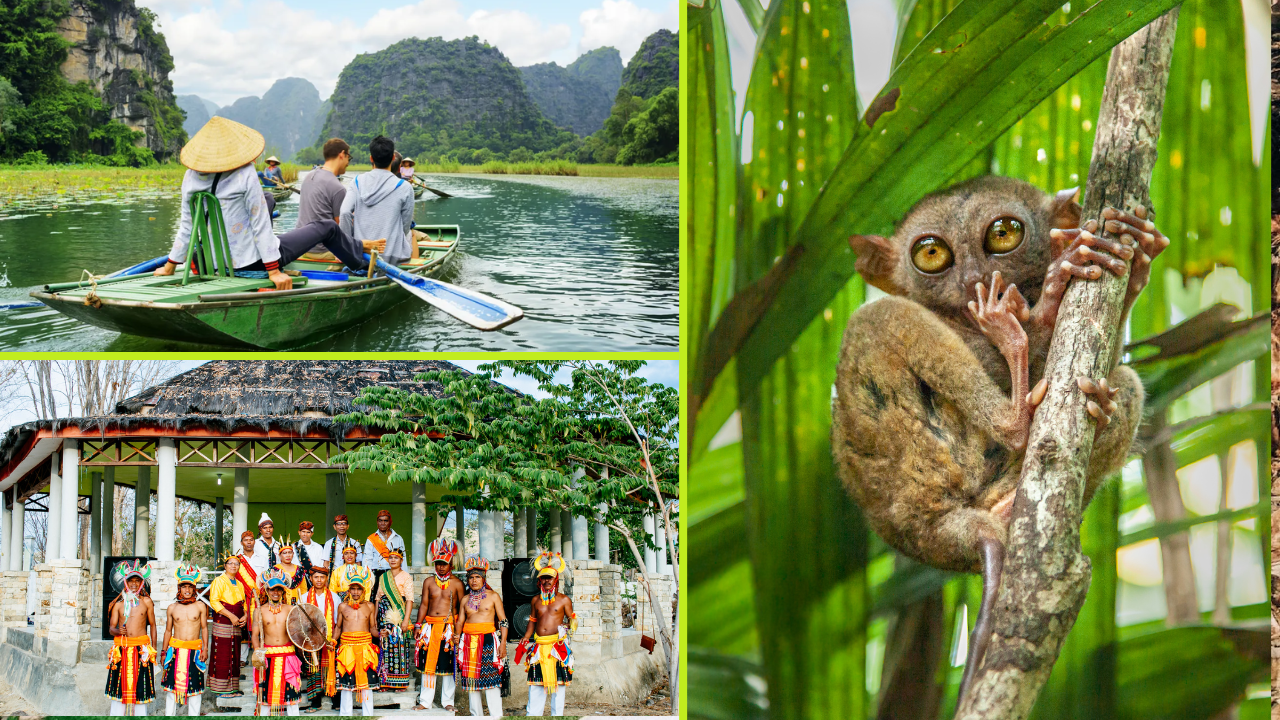
✅ Why Remote Eco Hotels Matter
According to the UNWTO, over-tourism in Southeast Asia threatens fragile ecosystems and displaces local communities. Remote sustainable hotels provide a critical alternative:
- 🌱 They decentralize tourism, shifting demand away from overdeveloped areas like Bali and Phuket.
- 🛖 They empower indigenous groups by offering community ownership and cultural exchange.
- 🐾 They protect biodiversity by occupying land with minimal impact and funding conservation.
A 2023 Booking.com study revealed that 79% of global travelers want more off-the-beaten-path stays, especially if they benefit local people (Booking.com Sustainable Travel Report).
🏨 The Most Remote Sustainable Hotels in ASEAN
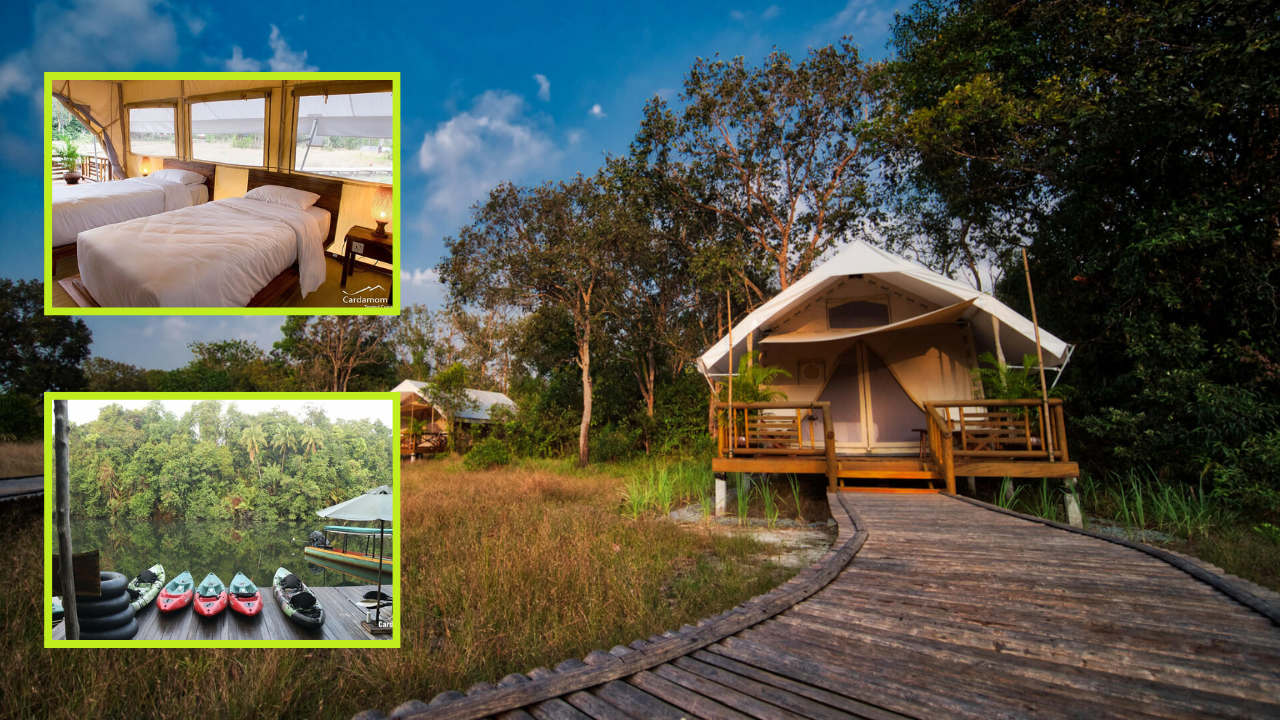
1. Cardamom Tented Camp – Cambodia
📍 Botum Sakor National Park, Cambodia
A true frontier eco-camp, accessible only via boat, Cardamom Tented Camp is part of a conservation alliance protecting one of Asia’s last unfragmented rainforests.
Why it’s special:
- Operated in partnership with Wildlife Alliance and the Cambodian government
- Solar-powered safari-style tents
- Supports rangers who protect the forest from poaching and illegal logging
- 100% of profits reinvested into conservation
🏨 Escape to Secluded Sustainability
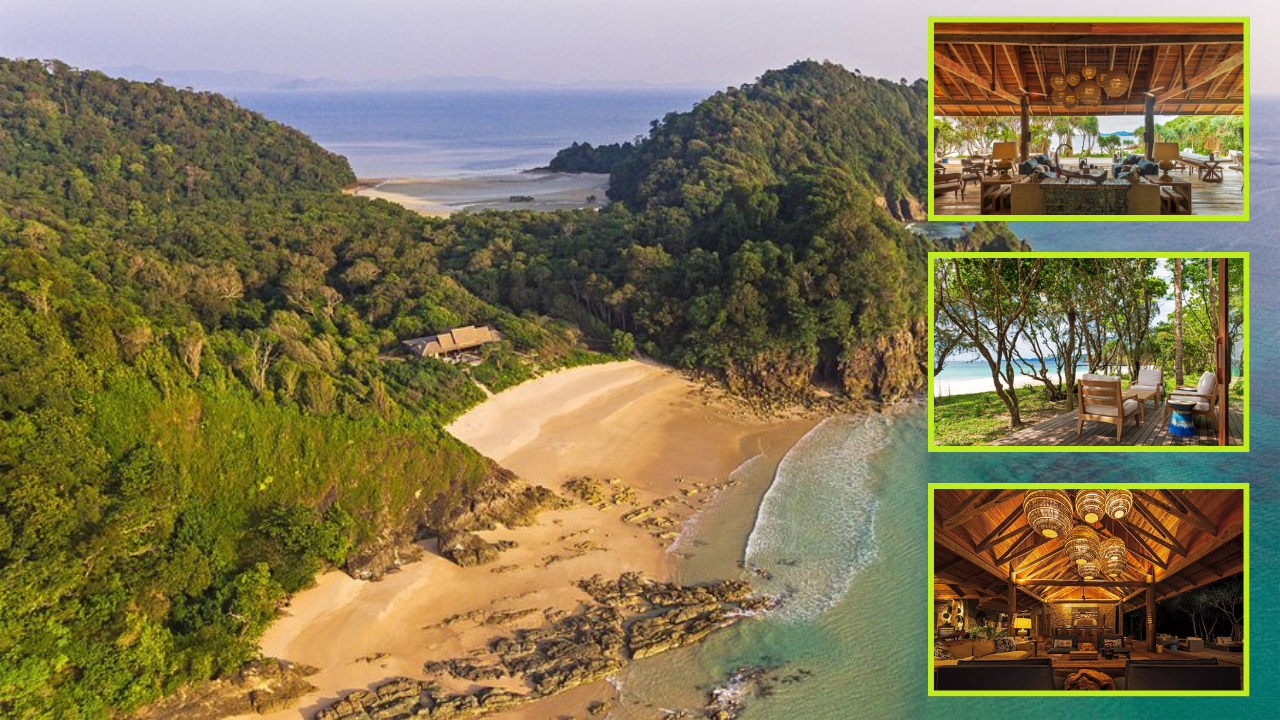
2. Wa Ale Island Resort – Myanmar
📍 Lampi Marine National Park, Mergui Archipelago
Set on a private island in a protected marine park, Wa Ale is one of Myanmar’s most sustainable luxury resorts.
Why it’s special:
- Built with reclaimed materials by local artisans
- Hosts sea turtle conservation programs and coral restoration
- Staffed almost entirely by the local Moken community
- 20% of revenue supports the Lampi Foundation
🏨 Escape to Secluded Sustainability
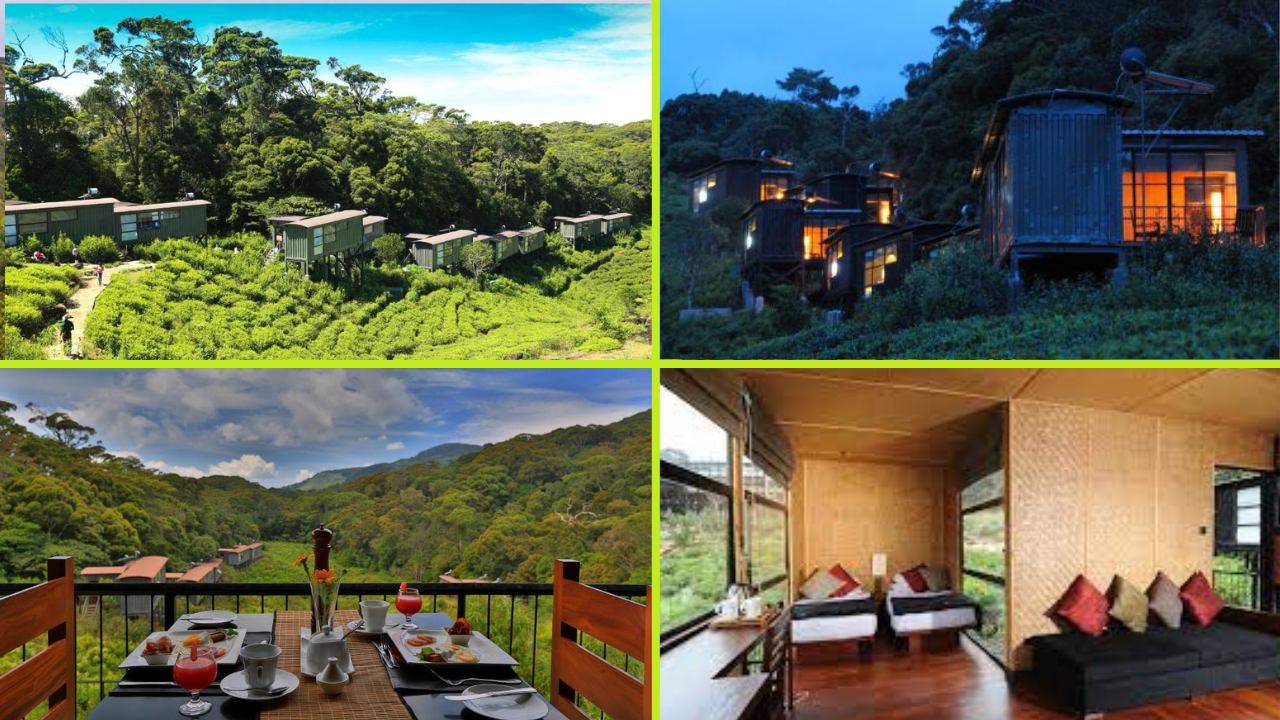
3. Rainforest Ecolodge – Sri Lanka
📍 Sinharaja Rainforest Reserve (UNESCO), Sri Lanka
While not part of mainland ASEAN, Sri Lanka is often included in extended ASEAN travel networks.
Why it’s special:
- 100% off-grid with micro-hydro and solar power
- Built on abandoned tea estate land, rehabilitating native flora
- Indigenous Vedda culture tours and foraging experiences
- One of Asia’s first zero-waste ecolodges
🏨 Escape to Secluded Sustainability
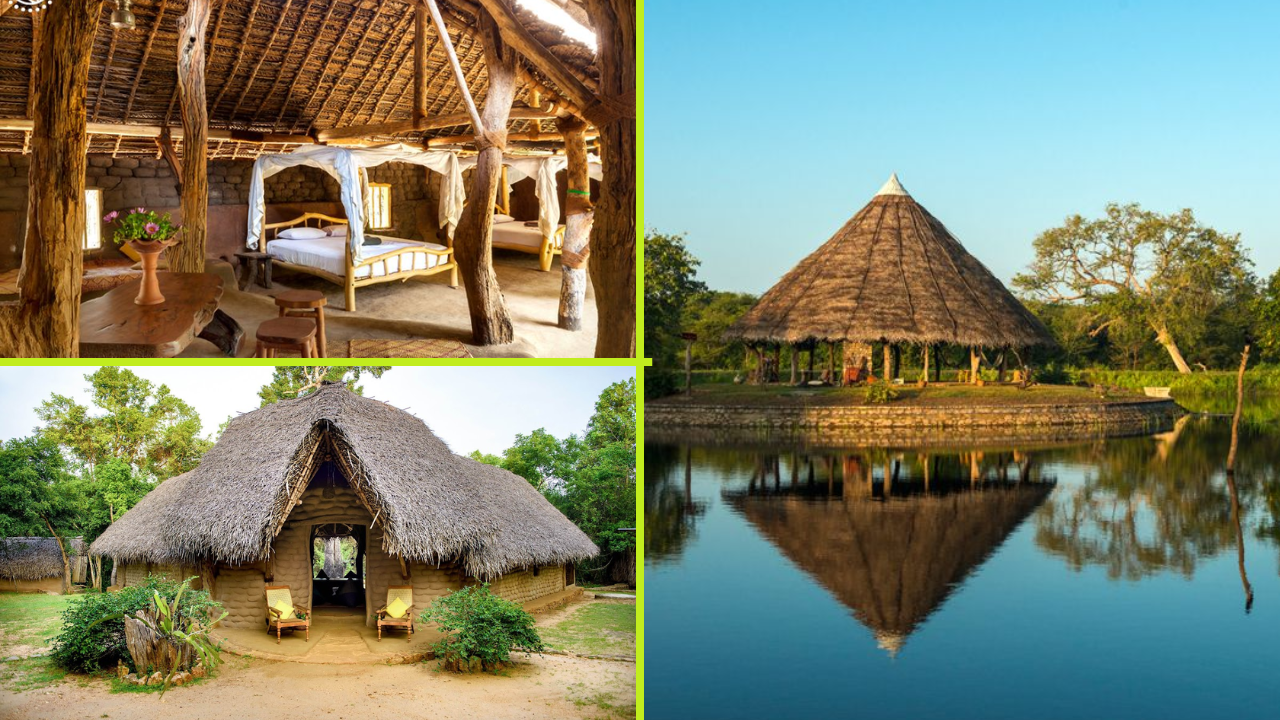
4. The Mudhouse – Anamaduwa, Sri Lanka
📍 Anamaduwa, off the tourist trail
Nestled in remote forestland hours from any city, The Mudhouse is an off-the-grid, no-electricity eco-retreat.
Why it’s special:
- Constructed entirely from mud, wood, and palm
- Powered by solar and candlelight
- Supports nearby indigenous communities through cultural tourism
- Farm-to-table vegetarian meals grown onsite
🏨 Escape to Secluded Sustainability
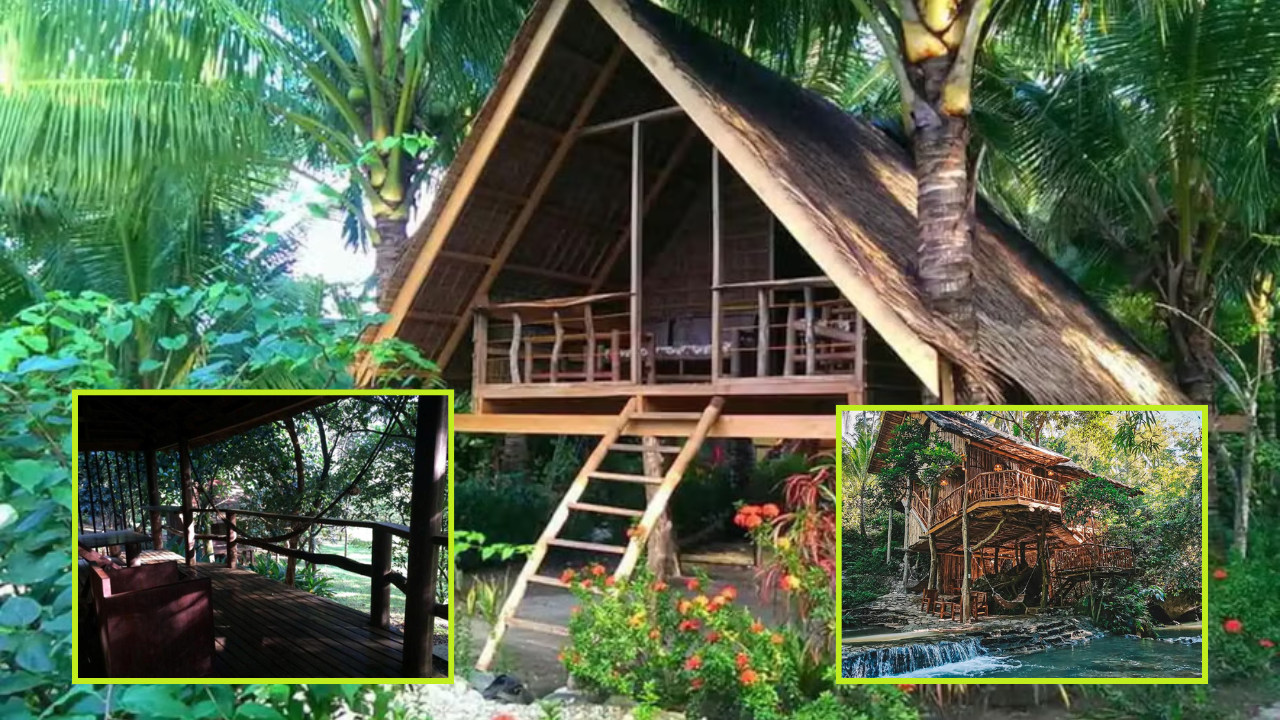
5. Treetop Eco-Lodge – Mindoro, Philippines
📍 Tamaraw Conservation Site, Mindoro
Built in partnership with the Mangyan people, this hidden lodge supports endangered species preservation.
Why it’s special:
- Situated within a conservation zone for tamaraws (dwarf buffalo)
- Co-managed by an indigenous-led eco-tourism board
- Operates with solar panels and compost toilets
- Accessible only via a 4-hour trek
🏨 Escape to Secluded Sustainability
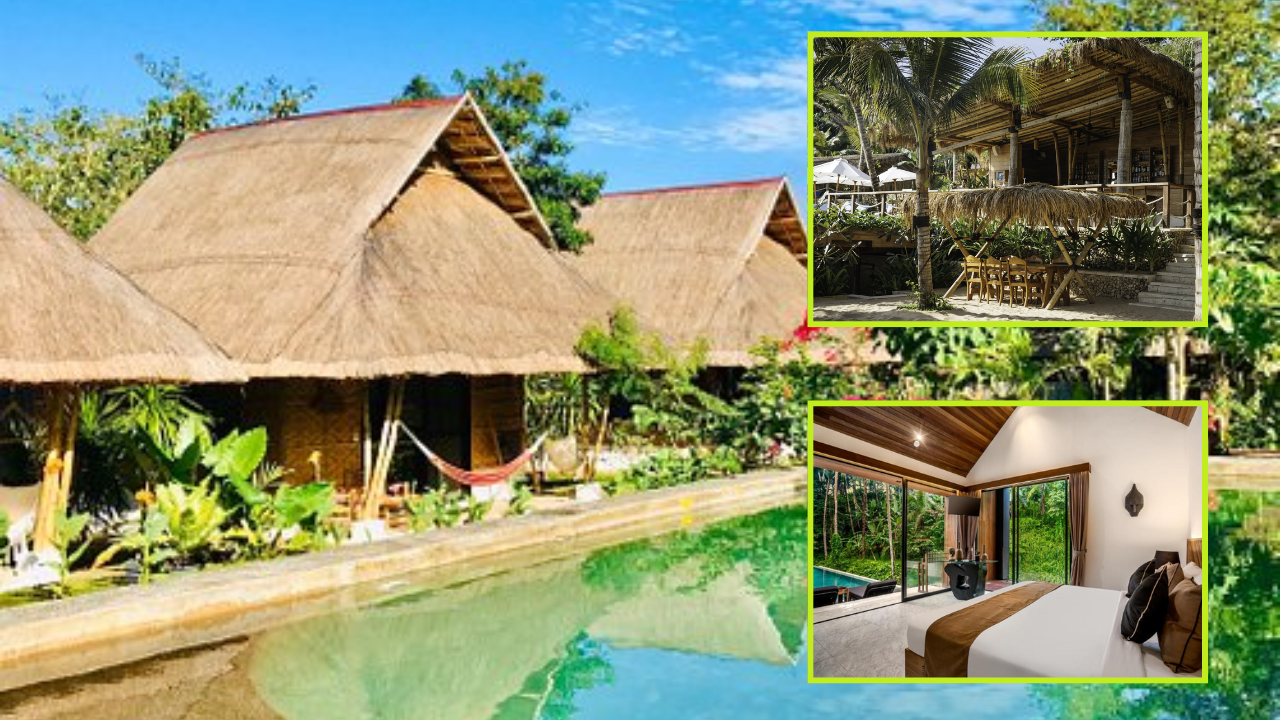
6. Three Little Birds Lodge – Sumba, Indonesia
📍 West Sumba, Nusa Tenggara
This rugged lodge is located hours from the nearest town, nestled between the beach and jungle.
Why it’s special:
- 100% off-grid: solar power, gravity-fed water
- Works with the Marapu people for cultural exchange and employment
- Permaculture gardens and earthen architecture
- Offers guided waterfall and sacred site hikes
🏨 Escape to Secluded Sustainability
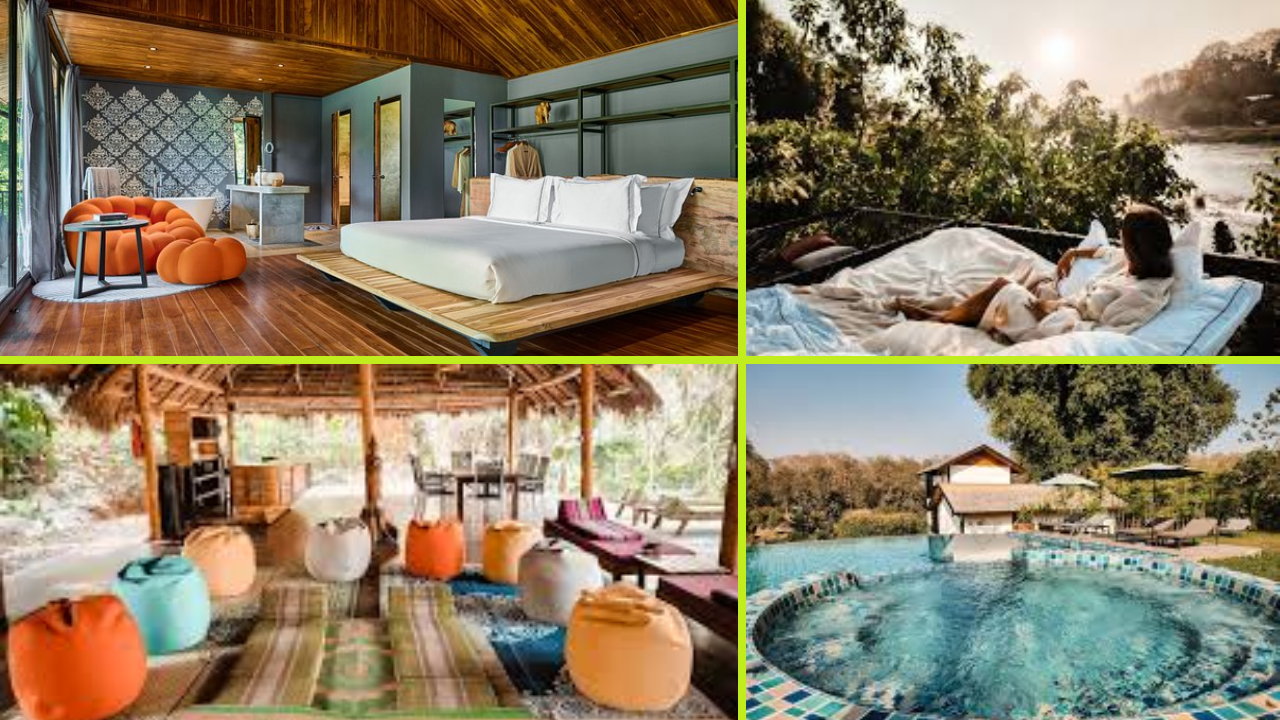
7. Terra Nova Eco Resort – Luang Namtha, Laos
📍 Nam Ha Biodiversity Corridor
A homestay-inspired lodge built in collaboration with the Khmu and Akha tribes.
Why it’s special:
- Jungle-accessible only by canoe or hiking
- Guests stay in traditional houses built with bamboo and palm
- Local guides teach forest medicine and ancestral farming
- All profits reinvested into village health and education
🏨 Escape to Secluded Sustainability
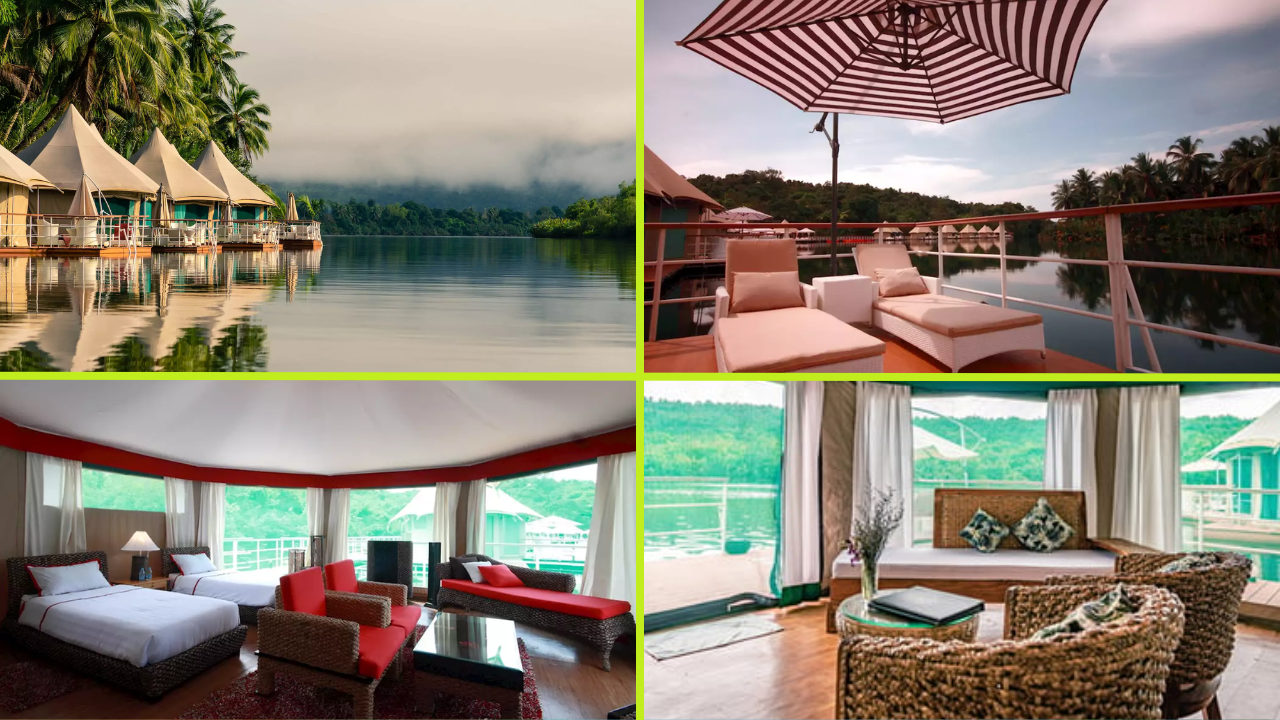
8. 4 Rivers Floating Lodge – Tatai River, Cambodia
📍 Near Koh Kong, Tatai Jungle
Floating in the middle of a river, this is Southeast Asia’s first fully water-based luxury eco-resort.
Why it’s special:
- Accessible only by boat
- Solar power and water filtration system
- No sewage output — 100% waste is transported out
- Supports mangrove reforestation and floating school projects
🏨 Escape to Secluded Sustainability
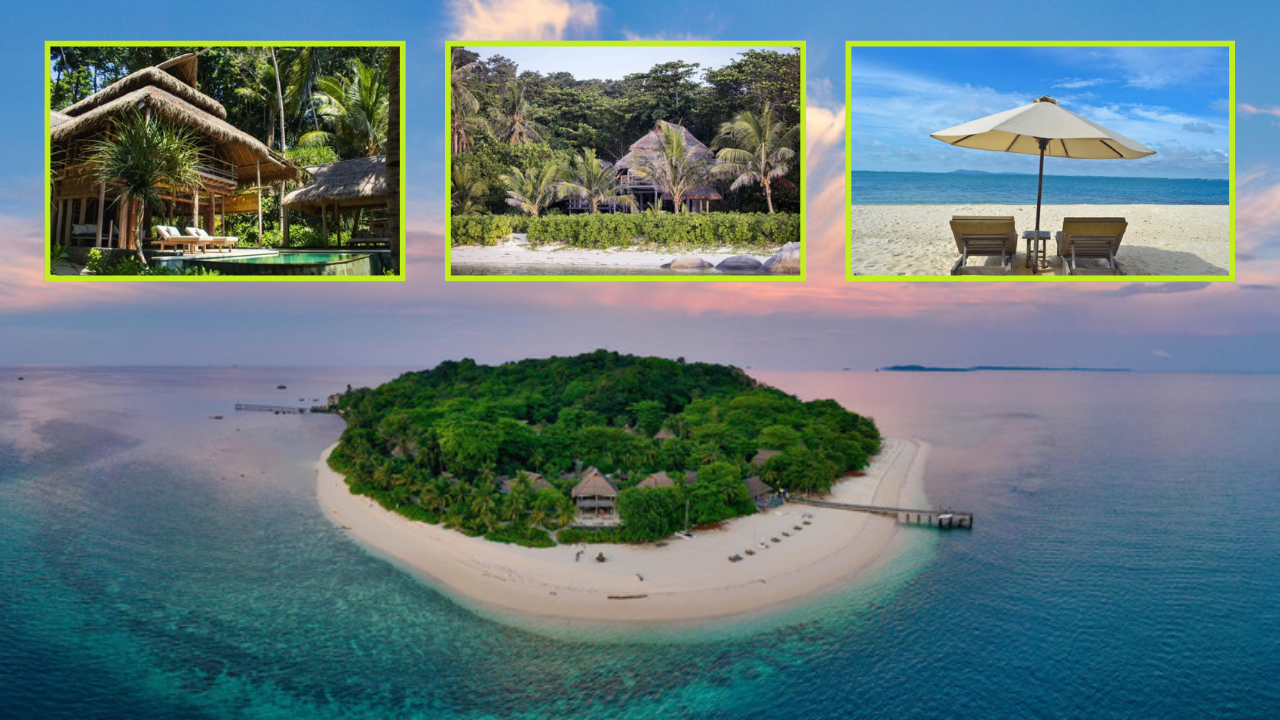
9. Nikoi Island – Bintan, Indonesia
📍 South China Sea, Bintan Archipelago
Privately owned and powered by sustainability, Nikoi offers a rare example of private luxury meeting long-term environmental ethics.
Why it’s special:
- Powered entirely by solar and wind
- Coral reef regeneration projects
- Supports Riau Island schools and turtle hatcheries
- Zero single-use plastics
🏨 Escape to Secluded Sustainability
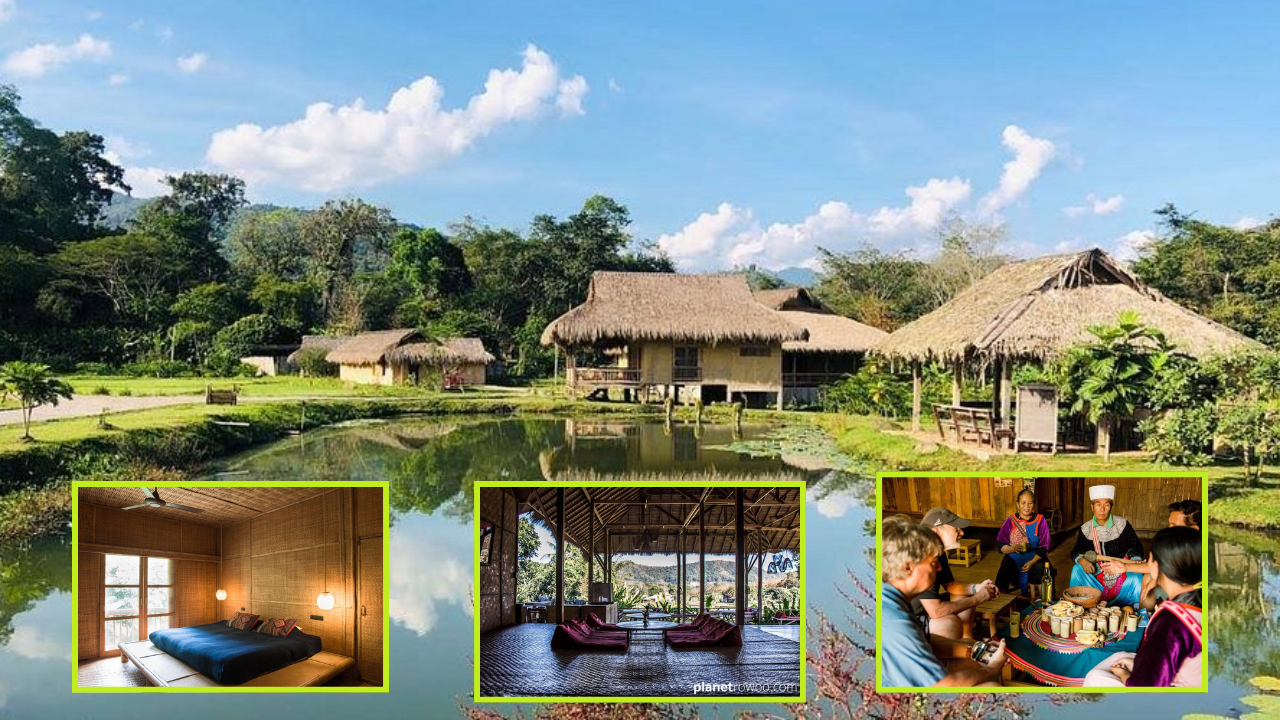
10. Lisu Lodge – Chiang Mai, Thailand
📍 Foothills of the Himalayas
Run by the Lisu Hill Tribe in partnership with Asian Oasis, this lodge brings tourism back to the indigenous people.
Why it’s special:
- Lodge ownership benefits the Lisu community directly
- Traditional bamboo huts with composting toilets
- Rice terraces and local herb trails
- Cultural workshops on weaving, farming, and spiritual rituals
🏨 Escape to Secluded Sustainability
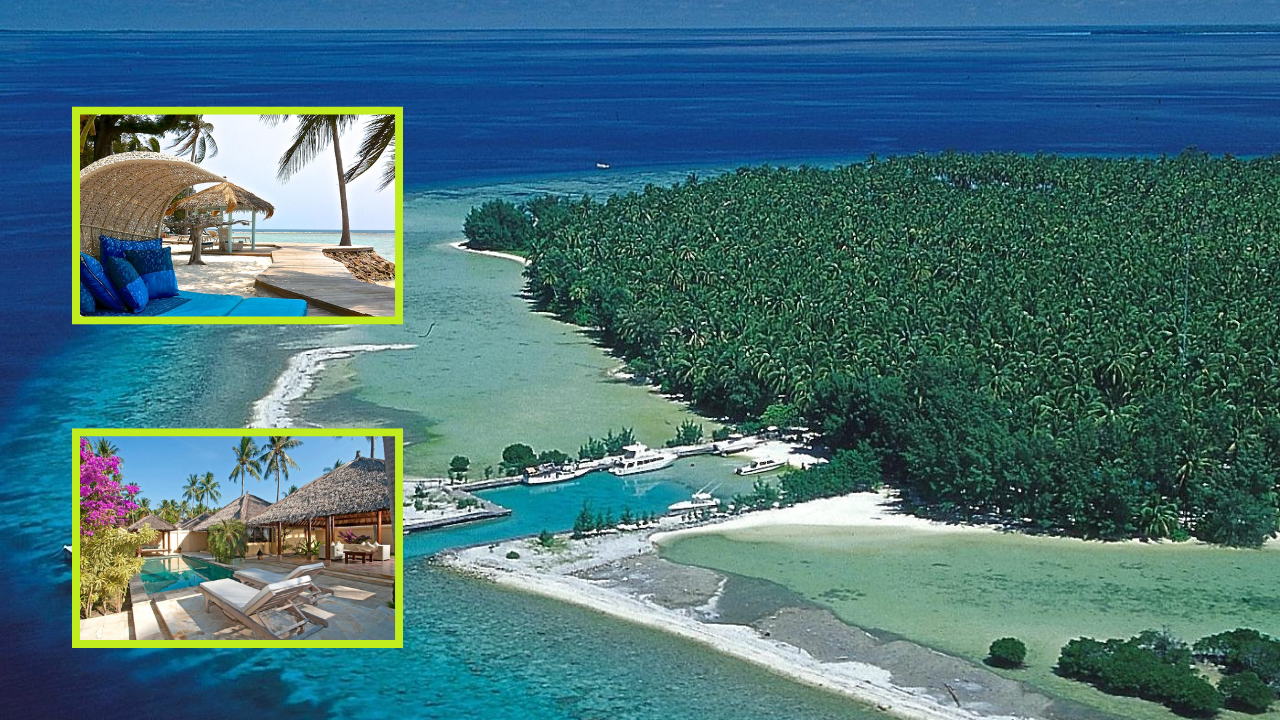
11. Kura Kura Resort – Karimunjawa Islands, Indonesia
📍 Central Java’s Coral Triangle
A private island retreat that relies on solar power and rain catchment, accessible only by private boat or charter.
Why it’s special:
- Coral preservation and seaweed farming supported by guest fees
- Low-density resort design with wide space per villa
- Food sourced from local fishing villages
- Zero plastic use in operations
🏨 Escape to Secluded Sustainability
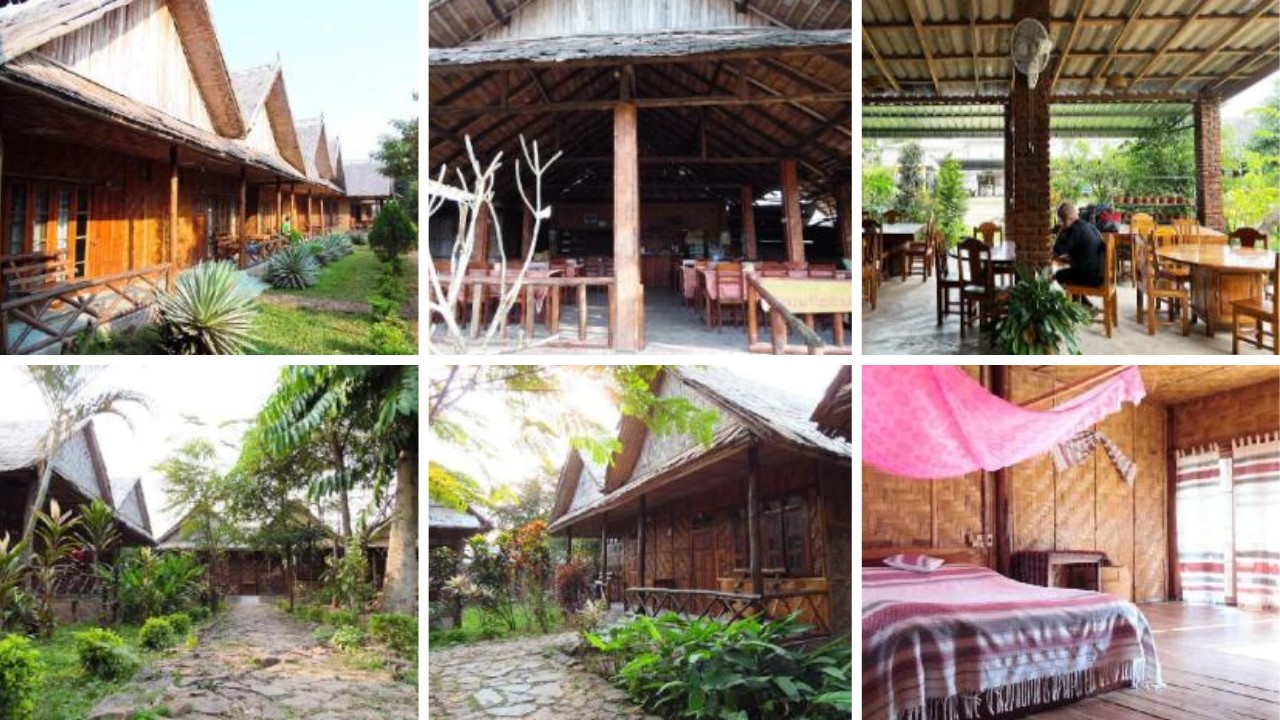
12. Phou Iu Eco Lodge – Muang Sing, Laos
📍 Golden Triangle region, remote Laos
A gateway to one of Southeast Asia’s least developed regions.
Why it’s special:
- Community-run lodge supporting local hill tribes
- Trekking packages hosted by Akha, Hmong, and Lanten guides
- Guests eat traditional meals and stay in tribal-inspired longhouses
- Waste minimization and renewable building materials
🏨 Escape to Secluded Sustainability
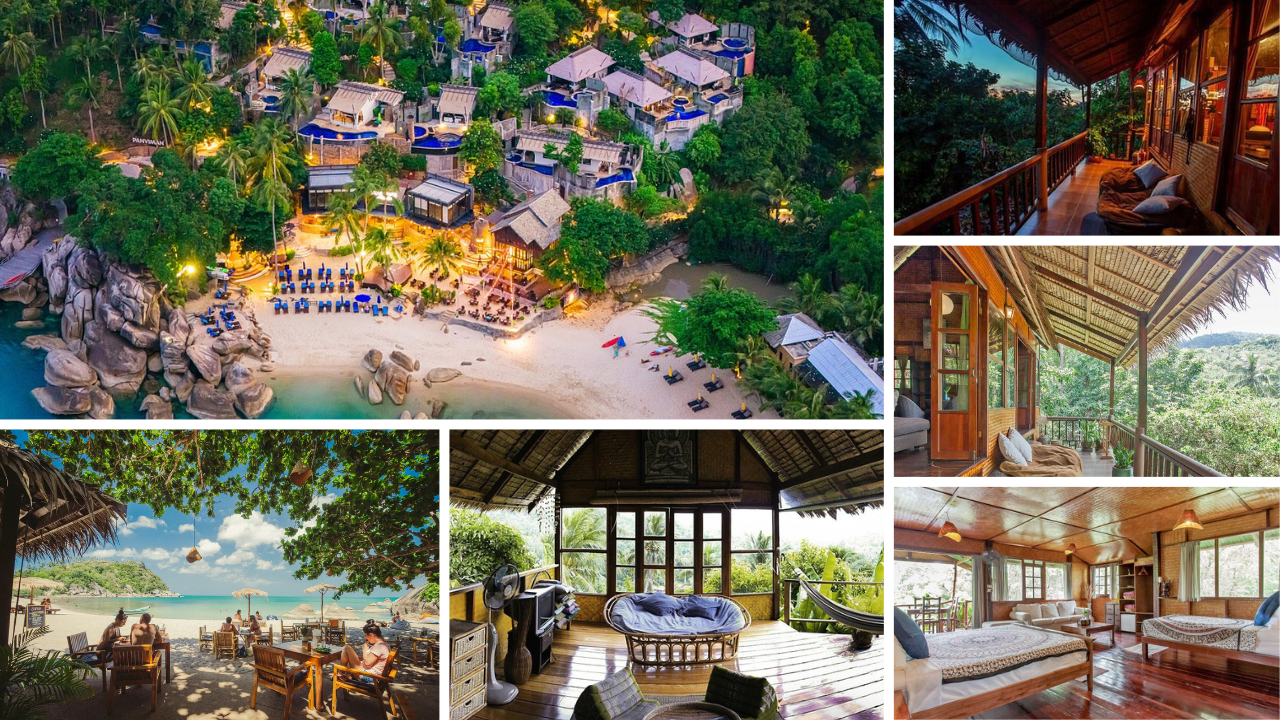
13. The Sanctuary Eco Retreat – Koh Phangan, Thailand
📍 Haad Yuan Bay, accessible only by boat or foot
This off-grid wellness retreat blends yoga, detox, and sustainability.
Why it’s special:
- Built from local stone, bamboo, and thatch
- Supports Thai islander communities and organic agriculture
- Offers “silent stays” for conscious disconnection
- Water is sourced and filtered from mountain springs
🏨 Escape to Secluded Sustainability
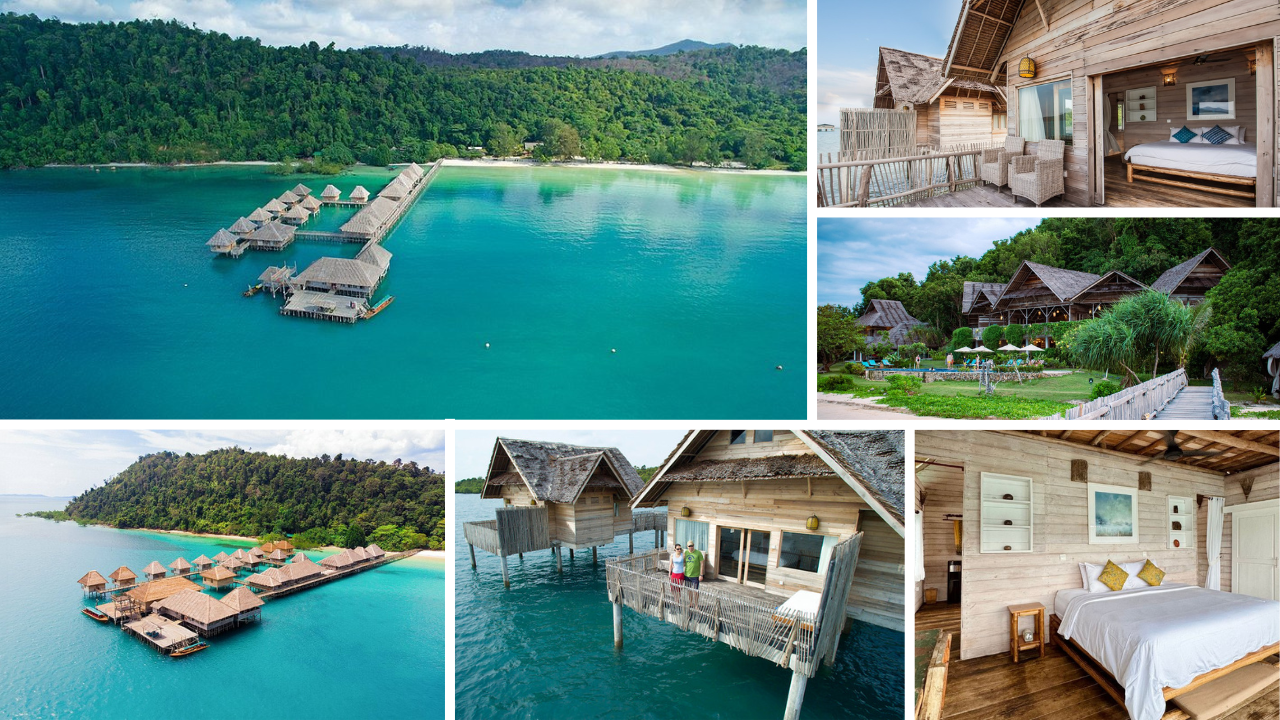
14. Telunas Private Island – Riau Islands, Indonesia
📍 Accessible only by boat from Batam or Singapore
Telunas offers total seclusion with strong sustainability credentials.
Why it’s special:
- Built by local craftspeople using traditional methods
- Off-grid with water recycling and solar power
- Hosts education programs and community development
- Coral and mangrove protection zones
🏨 Escape to Secluded Sustainability
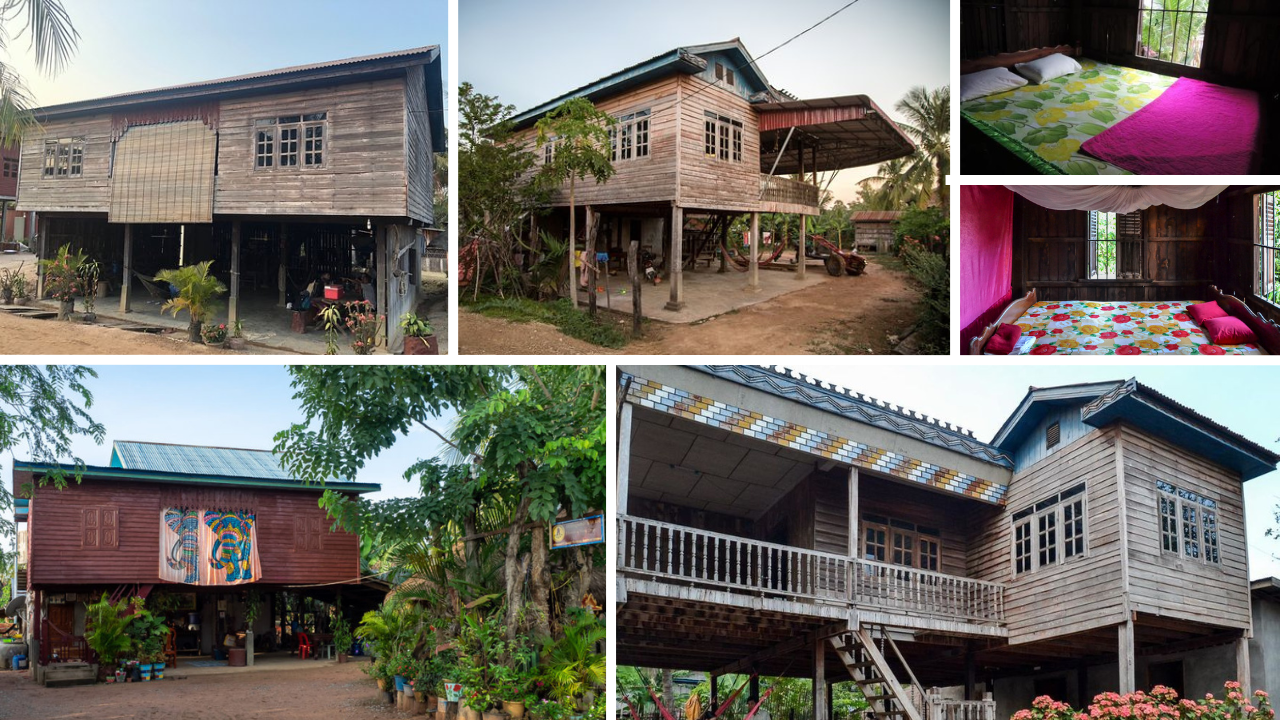
15. Banteay Chhmar Homestay Network – Banteay Meanchey, Cambodia
📍 Near the ancient ruins of Banteay Chhmar
This is a community-run indigenous homestay system far from Cambodia’s mainstream tourist zones.
Why it’s special:
- Provides income to over 200 families in the region
- Guests stay in traditional Khmer stilt houses
- 100% of profits go toward healthcare, education, and temple restoration
- Offers deep cultural immersion in music, food, and farming
🏨 Escape to Secluded Sustainability
🌱 Indigenous Partnerships: Tourism That Gives Back
Many of these hidden green retreats are more than just eco-friendly — they’re run with or by local indigenous communities, ensuring that cultural preservation is just as vital as environmental protection.
These partnerships ensure:
- 🔄 Revenue stays local
- 🛖 Cultural heritage is protected
- 🌾 Eco-practices align with traditional wisdom

💚 Final Thought: Go Off-Grid With Purpose
In a world of over-tourism and greenwashing, these remote eco hotels in ASEAN prove that isolation can be a revolutionary act. Every jungle path, reef dive, and bamboo hut represents a commitment to travel that restores — not consumes.
So if you’re ready to leave behind the mainstream and reconnect with what truly matters, consider one of these secluded nature lodges. It’s not just about getting away — it’s about giving back.









